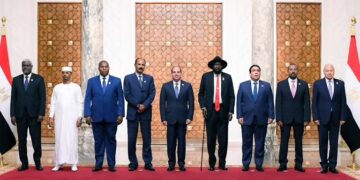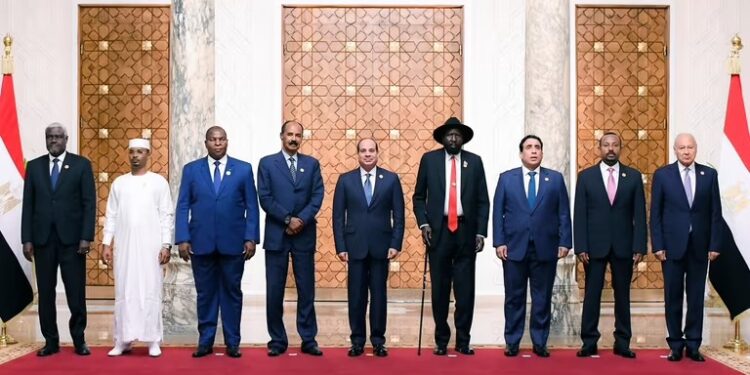By Riches Soberekon
On Thursday, leaders of Sudan’s neighboring countries gathered in Cairo, Egypt, to discuss the violence in Sudan.
The meeting, hosted by Egyptian President Abdel Fattah el-Sissi, was attended by the leaders of Ethiopia, South Sudan, Chad, Eritrea, the Central African Republic, and Libya.
The leaders showed deep worry about the worsening humanitarian condition in Sudan and denounced the repeated attacks on civilians, healthcare facilities, and public service outlets.
They urged the international community to intensify its efforts to provide humanitarian assistance and address the severe scarcity of food and medical supplies in Sudan.
After the talks in Jeddah, Saudi Arabia, failed due to the repeated failure of both sides to stop fighting and break of cease-fire agreements, the meeting took place weeks later.
The leaders decided to create a ministerial mechanism to tackle the Sudanese crisis, which will be headed by foreign ministers from the neighboring countries.
The mechanism’s first meeting will be held in Chad.
The ministerial mechanism aims to devise an executive work plan with practical and feasible solutions, halt the fighting, and achieve a comprehensive resolution to the Sudanese crisis by communicating directly with the various Sudanese parties.
The leaders also urged the Intergovernmental Authority on Development (IGAD) and the African Union to collaborate with the ministerial mechanism.
The meeting in Cairo is a significant milestone in the attempt to achieve peace in Sudan. The creation of the ministerial mechanism and the request for direct communication with the Sudanese parties are encouraging indications.
Nonetheless, it’s uncertain whether the leaders will be able to succeed in their efforts to stop the violence and bring peace to Sudan.

































